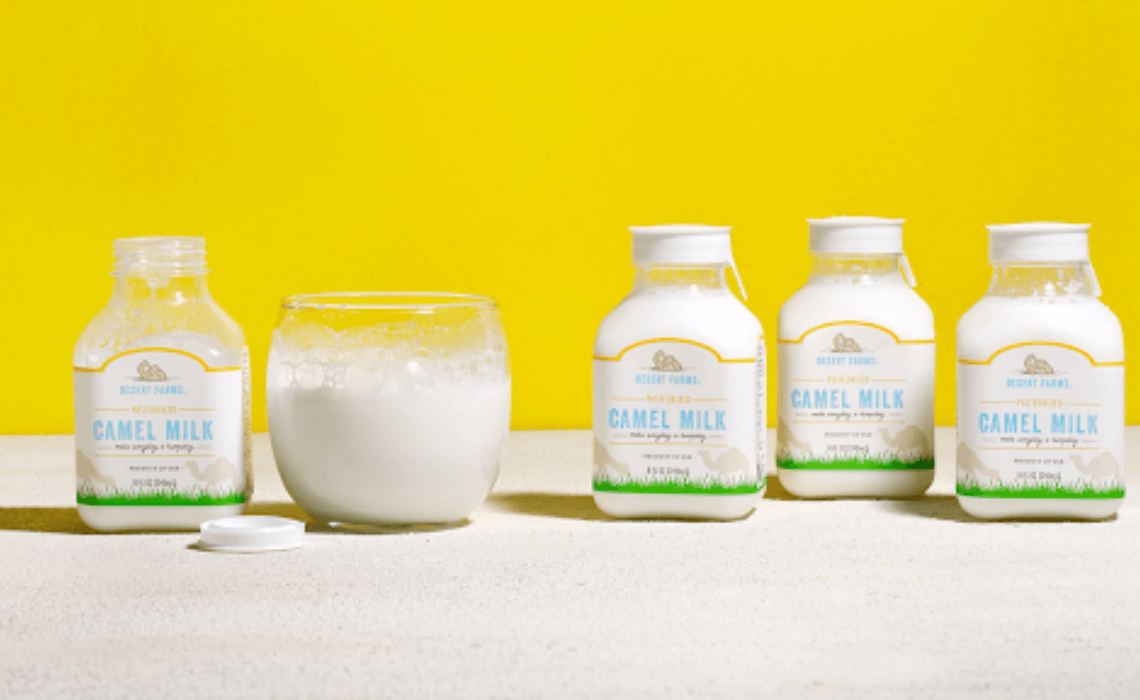Camel milk contains a higher amount of vitamin C than other types of mammalian milk. As it is two to 3 times what cow’s milk contains and therefore it is a good source of vitamin C compared to other sources of this vitamin, which are difficult to grow in the desert, according to a review published in the Journal of Family Medicine and Disease Prevention in 2019, too.
Camel milk contains vitamin A, but its content is lower than what is available in cow’s milk, and it contains vitamin E in the same amount as cow’s milk, according to a laboratory study published in the International Journal for Vitamin and Nutrition Research. This milk is easily available in online stores.
A Rich Source of Minerals:
Table of Contents
Camel milk contains many minerals that the body needs in small amounts compared to other types of milk, as it is a good source of calcium, iron, and zinc. Important for maintaining and improving the immune system.
Good Source of Healthy Fats:
Camel milk contains many healthy fats, such as; Long chain fatty acids, linoleic acid, and unsaturated fatty acids which can improve heart and brain health.
Although camel milk is not one of the most commonly used types of milk in the world like cow’s milk, for example, it is known in many countries and cultures, and it has many health benefits. healthy and can outperform other types of milk. Camel milk Australia is famous above all camel milk brands. Let’s buy camel milk and get benefits!
Nutrients In Camel Milk
First of all, we must highlight the fact that camel milk contains much less fat and calories than cow’s milk, and camel milk contains much more vitamin B3, iron, and vitamin C than cow’s milk. Camel milk contains very little lactose, making it a good option for those who cannot drink it. cow’s milk due to their lactose intolerance. Camel milk is said to be very similar in structure and nature to breast milk.
The Benefits of Camel Milk
Camel milk has many benefits which we will review in the following:
1. Protection against diabetes
Camel milk contains many important substances and nutrients, including insulin-like proteins, and the balance between insulin and glucose in the body is important for preventing diabetes.
This makes camel milk particularly useful in preventing diabetes and alleviating its symptoms by regulating blood sugar, reducing insulin resistance, and lowering cholesterol.
2. Boost Immunity

Camel milk contains a high percentage of protein and some important compounds that have anti-inflammatory and anti-infective properties, making it a natural booster and support for the immune system and its various functions in the body.
3. Protect the liver
The nutrients in camel milk can help fight viruses that cause liver disease.
Camel milk has also been shown to be effective in lowering high levels of certain liver enzymes, which is a sign of improved liver health. It also increases total body protein levels which are low in liver disease.
4. The possibility of assistance in the treatment of cancer
Camel milk can cause cancer cells to die, which can help treat cancer.
Vitamins E and C, certain proteins, and immunoglobulins also play an important role in cancer prevention, but more research is still needed.
5. Autism Help
Due to the high concentrations of some important nutrients in camel milk, it is particularly beneficial for the nervous system and may help protect against certain autoimmune diseases. Several studies have surprisingly shown that camel milk can significantly reduce autism symptoms if taken regularly.
6. Alleviation of allergic reactions
Some researchers have associated camel milk with relieving allergic reactions when consumed regularly, and it does not in any way cause allergic reactions in lactose intolerant people, unlike cow’s milk, due to its different structure.
7. Promote Heart Health
Camel milk is rich in healthy fatty acids, which makes it very helpful in improving blood cholesterol levels. And when the levels of bad cholesterol in the body are reduced, the risks of heart attack, stroke, high blood pressure, and atherosclerosis are reduced.
- How To Create A Safe And Comfortable Home Environment For In-Home Care In Boca Raton? - July 16, 2024
- 10 Trendy Black Nail Ideas To Elevate Your Nail Game - May 6, 2024
- Getting A Free Divorce In Virginia? Here’s What To Expect - April 24, 2024





No Comments